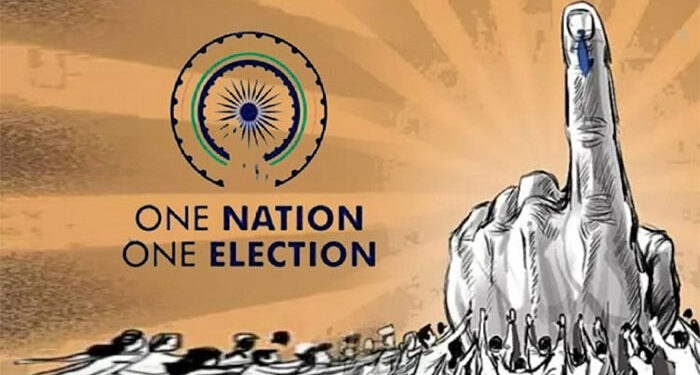- The ‘One Nation, One Election’ Bill will be introduced in Parliament’s winter session
- It is not practical; BJP trying to divert attention from real issues: Congress
NE NEWS SERVICE
NEW DELHI, SEPT 18
The Union Cabinet, chaired by Prime Minister Narendra Modi, has accepted the recommendations of the High-Level Committee on Simultaneous Elections under the chairmanship of former President Ram Nath Kovind.
With this move, the BJP-led NDA government took a decisive step towards fulfilling one of its key poll promises.
The high-level committee set up to study simultaneous parliamentary, assembly and local bodies polls, headed by former president Ram Nath Kovind, had submitted its report in March this year, ahead of the Lok Sabha polls.
The move comes soon after the completion of 100 days of the NDA 3.0 government. Prime Minister Narendra Modi had pushed for a single election in his Independence Day address last month.
The panel, which was set up in September 2023, consulted stakeholders and experts, and after due research over 191 days, submitted its report to President Droupadi Murmu.
The committee has not specified any period for rolling out simultaneous polls.
The Kovind panel had recommended preparation of a common electoral roll and voter ID cards by the Election Commission of India (ECI) in consultation with state election authorities.
It proposed as many as 18 constitutional amendments, most of which will not need ratification by state Assemblies. However, these would require certain Constitution amendment Bills that would need to be passed by Parliament.
It is not practical; BJP trying to divert attention from real issues: Congress
The opposition Congress on Wednesday slammed the Union cabinet’s decision to approve the proposal for ‘one nation, one election’, saying such an excercise is not practical in the country.
Party president Mallikarjun Kharge said the ruling BJP comes up with such things only to divert attention from real issues when elections approach.
“It is not practical. It will not work. When elections come, and they are not getting any issues to raise, then they divert attention from real issues,” Kharge said at a press conference in Delhi.
Senior Congress leader T.S. Singhdeo said, “It is only a strategy of political convenience, and what I can see is nothing beyond that. The same party which is governing the country as part of the NDA has been talking about this for the past few years.”
Another party leader Harish Rawat said the BJP has realised that they will lose elections in Haryana, Jammu and Kashmir, Maharashtra and Jharkhand.
“After losing one state after another, the BJP was not in a position to sustain that pressure that would’ve resulted in collapse of their coalition government. That’s why the rattled government has opted for ‘one nation, one election’ formula,” he said.
Simultaneous elections: recommendations of high-level committee
- Elections have been held simultaneously between 1951 and 1967.
- Law Commission: 170th report (1999): One election to Lok Sabha and all Legislative Assemblies in five years.
- Parliamentary Committee 79th Report (2015): suggest methods for simultaneous elections in two phases.
- High Level Committee chaired by Shri Ram Nath Kovind extensively consulted a broad spectrum of stakeholders including political parties and experts.
- The report is available online at: https://onoe.gov.in
- Extensive feedback has showed there is widespread support for simultaneous elections in the country.
- Recommendations and way forward
- Implement in two phases.
- In first phase: conduct Lok Sabha and Assembly elections simultaneously.
- In second phase: Conduct local body elections (panchayat and municipalities) within 100 days of general elections.
- Common electoral roll for all elections.
- Will initiate detailed discussions throughout the country.
- Constitute an implementation group.












